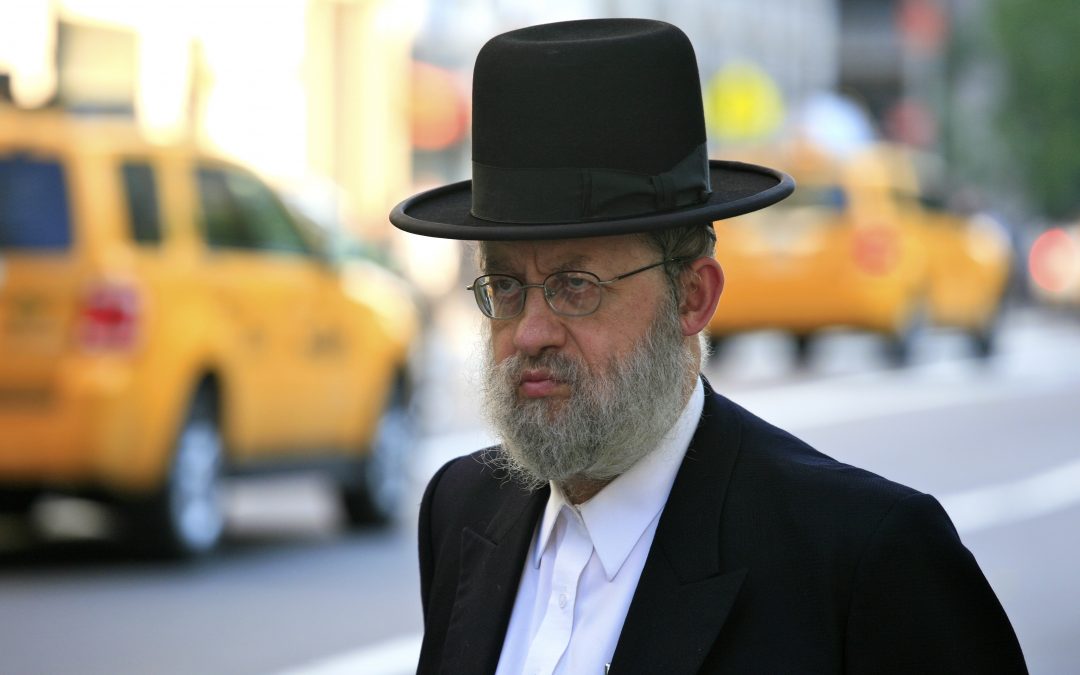Response by Shaul Hadar |
It is not uncommon for Jewish people to ultimately ask why the rabbis don’t accept Jesus as Messiah, if, in fact, He is the Messiah. There are two major reasons the rabbis give for not believing that Jesus is the Messiah.
1. THEY CLAIM THAT JESUS DID NOT FULFILL THE MESSIANIC PROPHECIES
Jewish sources say that when Messiah comes, he will usher in an era of world peace; will build the 3rd Temple, Ezekiel 37: 25-28; gather all the Jews back to the land of Israel, Isaiah 43:5-6; put down hatred, oppression, suffering and disease, Isaiah 2:4; and spread globally the God of Israel which will unite mankind as one, Zechariah 14:9.
If he fails in one of these, according to the rabbis, he cannot be the Messiah. Jesus failed in all of these, so he is definitely not the Messiah. No one has fulfilled the Bible’s description, so the Jewish people still await his coming.
What is really being said, is this: “According to our description of the Messiah, it cannot be Jesus.”
It is important to point out that the Hebrew Scriptures, Tanach, give us a much wider description of the Messiah and the Messianic age, and only Jesus fits the mold. One of the aspects of Messiah’s purpose was to bring about peace on earth. That is only part of the biblical portrait. In fact, nowhere in the Tanach does it explicitly say, “When the Messiah comes there will be peace on earth.” Rather, it speaks of an era of peace at the end of the age, (Isaiah 2:1-4, without any mention of a Messianic figure in this passage). Tying this in with the reign of a descendant of David, a “greater David” (Isaiah 9:6-7), and it is this Davidic King whom we call Messiah.
Jewish tradition, however, has forgotten there are other significant biblical prophecies that speak of the Messiah’s sufferings and His atoning death on our behalf. The bottom line is that the Messiah first came to make peace between God and man, bringing the hope of reconciliation and forgiveness to the world. The ultimate effects of His first coming will lead to His return and an era of complete peace on earth. One day His people will recognize Him for who He is, Zechariah 12:10.
2. THEY CLAIM THAT JESUS DID NOT EMBODY THE PERSONAL QUALIFICATIONS OF THE MESSIAH
One of the qualifications is that he be a descendent of King David who will rule in the coming kingdom; the Messiah must be in the line of King David (Genesis 49:10; Isaiah 11:1; Jeremiah 23:5-6). According to Jewish sources, the Messiah will be born of human parents and possess normal physical attributes like other people. He will not be God in the flesh.
Yet there are scriptures that clearly point to the divine nature of the Messiah: Isaiah 9:6, Psalm 45:7 and Daniel 7:13-14 to name a few. In Daniel 7: 13, “one like the son of man” is known in Jewish sources to be the Messiah, coming with the clouds. Interesting that we have a contrast in Jewish thought. He is to be an ordinary man, yet we have this ordinary man coming with the clouds of heaven signifying divinity! Daniel gives us another portrait of the 2nd coming of the Messiah discussed above!
To further the discussion of the line of the Messiah, Jewish sources argue that in the New Testament, Joseph would not qualify for the throne because of a certain curse put on Coniah (or Jeconiah as in Matthew 1:11). As a descendant of King David, whose children after him would never sit on the throne, Jeremiah 22:24-28, he was to be written off as “childless,” Jeremiah 22:30. Jeconiah was carried off to Babylon by Nebuchadnezzar, where, apparently, he repented (noted in rabbinic discussion) for we see his descendants Shealtiel and Zerubbabel ruling in the place of authority, Ezra 3:2,8; Nehemiah12:1; Haggai 1:1,12,14; 2:2.
Lastly, another rabbinic example tells us that the Messiah will lead the Jewish people in full observance of the Torah or Law. This Law states that all the commandments are binding forever. Any man coming to change the Law is identified as a false prophet. Jesus, according to the rabbis, violated the Law (John 9:16 observance of the Sabbath) for example, when he made a paste to heal the blind man, John 9:10-14.
There is a difference between the Torah and its traditions (Oral Law) and the literal written Word of God. The Oral law takes precedence in Judaism, adding much that is not found in the written Word.
Why don’t the rabbis believe Jesus is the Messiah? The response can be summarized rather simply. The rabbis have elevated their traditions over the Word of God. Because of these elevated traditions, they reject the clear teaching of the scripture (specifically the Messianic prophecies) for their rabbinic conjectures. A result of their traditions is they have a faulty model for recognizing the Messiah and thus reject Jesus as Messiah because He doesn’t fit their (erroneous) model.
Through the centuries, many rabbis have believed and accepted Jesus as Messiah. In order to do this, they rejected the erroneous model of the oral and rabbinic traditions and accepted what the Tanach, the Jewish Bible, said about the coming of Messiah. In comparing this scriptural model with Jesus as found in the New Testament, they became believers in Yeshua (Jesus) the Messiah!

